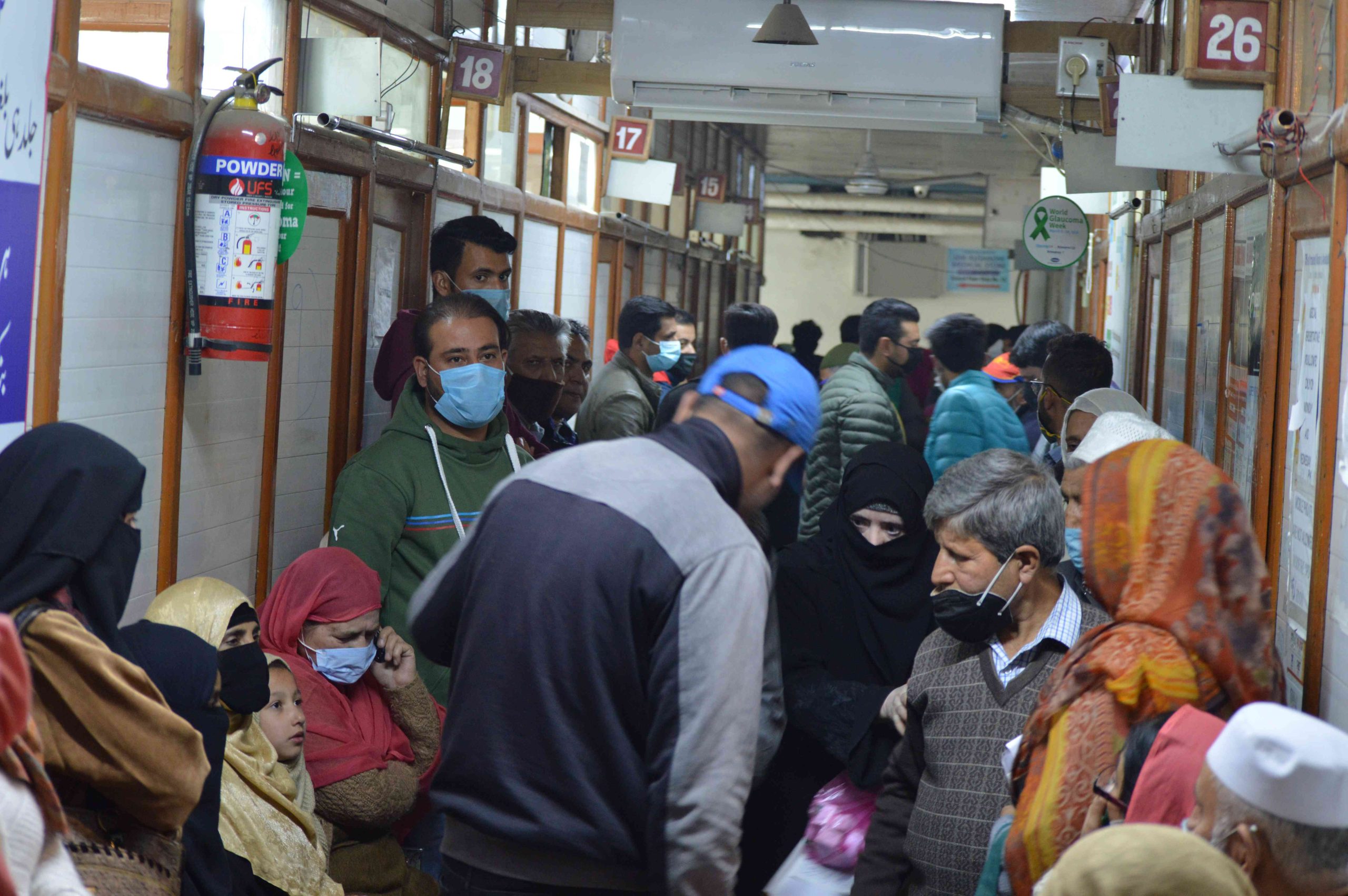
The Changing Face of Healthcare: Navigating the Commercialization of the Noble Profession
The Commercialization Conundrum: Decoding the Transformation of Healthcare
By: Javid Amin
Once revered as next to godliness, the noble profession of medicine is undergoing a seismic shift towards commercialization, leaving patients grappling with a healthcare system that seems to prioritize profit over compassion. In this comprehensive exploration, we unravel the intricate facets of this transformation, shedding light on the strained doctor-patient relationships, the proliferation of unnecessary medical tests, the prescription of expensive drugs, the validation of specific establishments, and the grim realities of doctor availability.
I. The Deterioration of Doctor-Patient Relationships:
The hallowed bond between doctors and patients, once considered the heartbeat of healthcare, is now languishing in a landscape marred by understaffed government hospitals and the questionable practices of private clinics.
- The Clinic Carousel: As patients approach doctors in private clinics, they are often herded through a disconcerting maze. Conversations become fragmented, akin to a chaotic assembly line –There’s a growing concern that overworked doctors, pressured by financial considerations, might prioritize quantity of patients over quality of care. This can manifest as rushed consultations, where a doctor might seem like they’re talking to one patient while examining another and prescribing for yet another. Despite hefty consultation fees, patients are left feeling like mere cattle, processed through a system that seems more interested in profits than their well-being.
- The Oath of Availability: The sacred oath that doctors take to serve people in every condition becomes a bitter irony when faced with the stark reality of unavailability. Patients, desperately seeking care, are met with hiding doctors who postpone appointments to a distant future, leaving their well-being hanging in the balance.
II. Unnecessary Medical Tests: The Quest for Profit Over Prudence
In a healthcare landscape rife with financial incentives, the art of diagnosis is overshadowed by a culture of unnecessary medical tests, causing patients to drown in a sea of examinations that serve financial interests rather than medical necessity.
- The Mirage of Diagnosis: The traditional skill of doctors, who could glean insights into a patient’s condition through astute observation, is overshadowed by a culture of over-testing. Patients find themselves subjected to a barrage of examinations, where relevance often takes a backseat to financial gains.
- Financial Exploitation: The choice of medical tests becomes a financial chess game, with doctors sometimes prioritizing their profits over the well-being of patients. Unnecessary tests not only burden patients financially but also erode the once unwavering trust between them and their healthcare providers.
III. Expensive Prescriptions: The Cost of Healing
The prescription pad, once a tool for healing, now carries the weight of financial considerations, leading doctors to choose the most expensive medications over more affordable alternatives.
- The Pharmaceutical Conundrum: In an age where a myriad of drugs is available, the prescription of the most expensive options raises eyebrows. Patients, once accustomed to viewing their doctors as trusted advisors, now question whether prescriptions are guided by medical necessity or financial interests.
- Erosion of Trust: The erosion of trust is palpable as patients suspect that their health might be secondary to the financial gains associated with prescribing expensive medications. The once-sacred trust between doctors and patients becomes a casualty of the commercialization of healthcare.
IV. Validation of Specific Establishments: Monetizing Trust
The seemingly innocuous directive to validate tests and prescriptions from specific establishments hints at a deeper web of financial relationships, where patient choice takes a backseat to commercial interests.
- Exclusive Partnerships: Patients find themselves caught in a system where medical tests and prescriptions are validated only if sourced from specific establishments. The ethical question looms large – is this validation based on patient well-being or financial arrangements between doctors and these establishments?
- Patient’s Dilemma: Patients, in their pursuit of health, are coerced into adhering to a system that limits their choices. The practice of restricting patients to specific establishments raises ethical concerns about the commercialization of healthcare services.
V. The Way Forward: Reclaiming the Noble Profession
Amidst the shadows of commercialization, there is a glimmer of hope for reclaiming the nobility of the medical profession. Initiatives and changes are needed at multiple levels to course-correct the trajectory of healthcare.
- Advocacy for Ethical Practices: Champions of ethical practices within the medical community can play a pivotal role in restoring trust and transparency. Organizations committed to upholding the integrity of the medical profession can spearhead the advocacy for ethical practices.
- Patient Empowerment: Education and awareness programs can empower patients to navigate the complexities of modern healthcare. Informed patients can actively question unnecessary tests, demand transparency in prescriptions, and make decisions that align with their well-being.
- Regulatory Reforms: Policymakers must enact and enforce regulations that address the commercialization of healthcare. This includes measures to ensure transparency in financial relationships between doctors and pharmaceutical establishments, as well as guidelines to curb unnecessary medical tests.
- Technological Integration: Responsibly leveraging technology can streamline healthcare delivery, reducing the need for unnecessary tests and improving overall efficiency. Electronic health records, telemedicine, and data analytics can prioritize patient care over financial gains.
Bottom-line: In the face of commercialization, the noble profession of medicine stands at a crossroads. Reclaiming its inherent nobility demands a collective effort from medical professionals, policymakers, and patients alike. By advocating for ethical practices, empowering patients with knowledge, enacting regulatory reforms, and integrating technology responsibly, we can chart a course toward a healthcare system that places the well-being of individuals above profit margins. In doing so, we honor the legacy of a profession that was once considered next to godliness.
More Stories
The Symphony of Hydration: How Water Orchestrates Optimal Digestion
Drink Your Way to Better Digestion: The Science of Water's Timing By: Saika J Water, the elixir of life, plays...
Nature’s Candy: Unveiling the Unexpected Benefits of Dates
Dates: Don't Just Love Them, Eat Them! Unveiling the Science-Backed Benefits By: Saika J Dates, the jewel-toned fruits dangling from...
The Vital Guardians: A Comprehensive Guide to Natural Kidney Cleansing
By: Saika J Our kidneys, these two bean-shaped marvels tucked away in our lower back, are the unsung heroes of...
The Silent Threat: Combating Heart Attacks with the 5 S’ Battle Plan
Why Young Hearts are at Risk: Lifestyle Choices Take Center Stage By: Saika J Heart disease – a name that...
Sweet Liberation: Crafting a Healthier Relationship with Sugar for a Vibrant Tomorrow
Illuminating the Path to a Sugar-Savvy Future By: Saika J In the midst of the modern dietary landscape, where sweetness...
Soothing Sips for a Sleepier You: Drinks to Promote Restful Nights
By: Saika J Ever stared at the ceiling, willing yourself to drift off, only to find the hours ticking by?...

